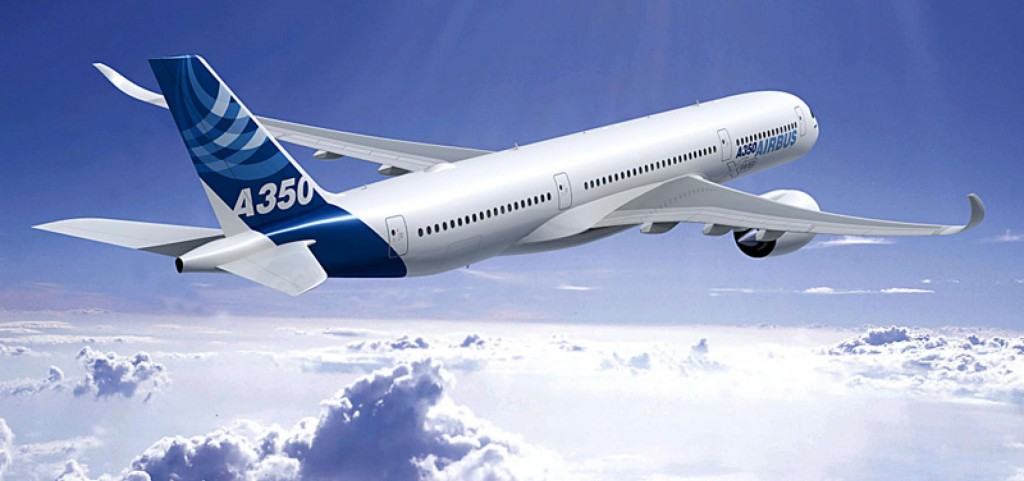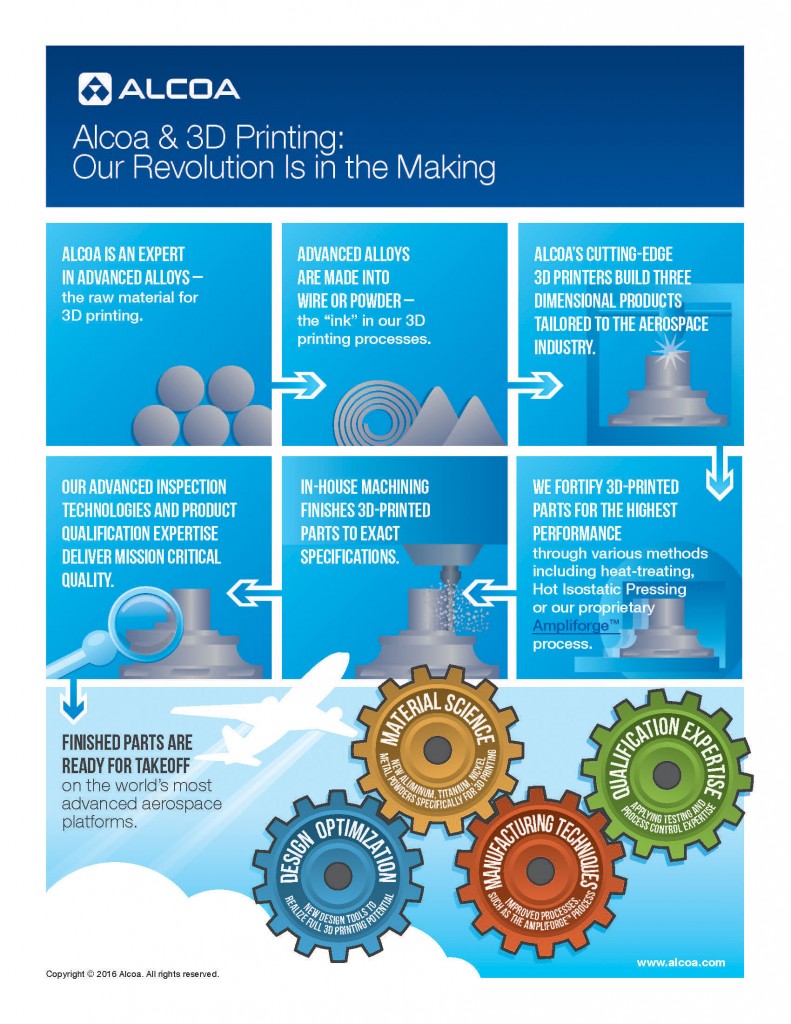Just two years ago, lightweight metals giant Aloca began looking more closely at its additive manufacturing capabilities, eventually leading them to pour $60 million into expanding the 3D printing capabilities at their Pennsylvania-based Technical Center. Now, the company is already ready to put those capabilities into action, signing an agreement with Airbus to supply 3D printed titanium fuselage and engine pylon parts, to be delivered mid-2016.
After acquiring RTI International Metals (RTI), now Alcoa Titanium & Engineered Products (ATEP), Alcoa increased its 3D printing capabilities with the inclusion of titanium and specialty metals. The ATEP division is further enhanced through Alcoa’s CT scan and Hot Isostatic Pressing (HIP) capabilities used to strengthen titanium and nickel-based superalloys. In addition to housing one of the largest HIP facilities in the world, the aforementioned Alcoa Technical Center represents the world’s largest light metals research center. The firm will now be leverageing all of those capabilities to develop multi-material alloys, 3D print fuselage and engine pylon parts, and to perform aerospace parts qualification for Airbus.
Alcoa Chairman and Chief Executive Officer Klaus Kleinfeld said of the agreement, “We are proud to partner with Airbus to help pave the way to the future of aerospace development and manufacturing. The unique combination of our multi-material alloy development expertise, powder production capabilities, aerospace manufacturing strength and product qualification know-how position us to lead in this exciting, emerging space.”
Other important details include the use of ATEP’s titanium ingot melting and billetizing, machining, finishing, and inspection technologies for the Airbus parts. It’s also worth noting that Alcoa’s aerospace business will spin off into its own company called Arconic in the second half of this year. And all of this comes after last year’s news that Aloca will be supplying Airbus with fastening systems that will fly on every Airbus plane. This deal was valued at $1 billion.
Airbus, as with all defense manufacturers, has been utilizing 3D printing for some time, but was among the first several years ago to plan its use for creating endparts. Those plans have slowly begun to materialize and began ramping up last year, as Airbus began flying numerous 3D printed parts in preparation for the deployment of their A350 XWB aircraft. They are still far from a completely 3D printed plane, but the A350 XWB may very well be the most 3D printed aircraft yet.





